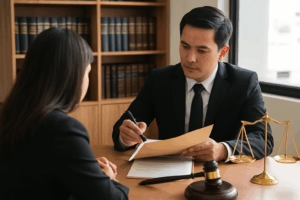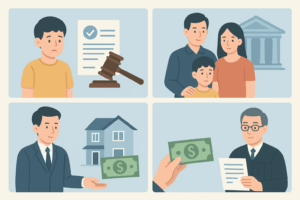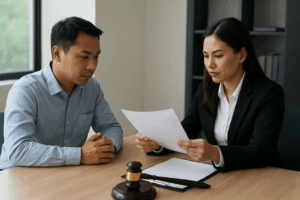Thailand, renowned for its vibrant culture and stunning landscapes, attracts millions of tourists and expatriates from around the globe. However, like any other country, Thailand is not immune to incidents of assault, harassment, and violence. For foreigners residing or traveling in Thailand, knowing how to navigate the legal process and seek justice in the event of such incidents is paramount. This comprehensive guide will explore the legal recourse available to foreigners in Thailand in cases of assault and violence, empowering individuals to protect their rights and ensure personal safety. If you find yourself in such a situation, seeking assistance from a reputable law firm in Bangkok can provide invaluable support and guidance.
Understanding Assault and Violence in Thailand:
Assault and violence can take various forms, ranging from physical altercations to sexual harassment and domestic abuse. In Thailand, such acts are punishable offenses under the country’s laws, and perpetrators can face criminal charges and legal consequences. Foreigners should be aware of their rights and options for seeking justice in cases of assault and violence, regardless of their nationality or status.
Types of Assault and Violence:
Physical Assault: Physical assault involves intentional harm or injury inflicted upon another person through physical force or violence. This can include acts such as punching, kicking, or using weapons to cause harm.
Sexual Harassment: Sexual harassment encompasses unwanted advances, comments, or behavior of a sexual nature that creates a hostile or intimidating environment for the victim. This can occur in various settings, including workplaces, public spaces, and social gatherings.
Domestic Violence: Domestic violence refers to abusive behavior, typically within intimate relationships or family settings, where one person seeks to exert power and control over another through physical, emotional, or psychological means.
Verbal Abuse: Verbal abuse involves the use of offensive or derogatory language to demean, belittle, or intimidate another person. While not always physical, verbal abuse can have significant psychological and emotional effects on victims.
Reporting Assault and Violence:
In the event of assault or violence in Thailand, it is crucial to report the incident to the authorities promptly. Here are the steps to take when reporting such incidents:
Seek Medical Attention: If injured, seek medical assistance immediately and document any injuries sustained during the incident.
Contact Local Authorities: Report the incident to the local police station or authorities in the area where the assault or violence occurred. Provide as much detail as possible, including the date, time, location, and description of the perpetrator(s).
File a Police Report: Work with the police to file an official report of the incident. Provide any evidence or witness statements that may support your case.
Cooperate with Investigations: Cooperate fully with any investigations or legal proceedings related to the incident. This may involve providing additional statements, attending court hearings, or participating in mediation or settlement negotiations.
Legal Recourse for Foreigners:
Foreigners in Thailand have the same rights as Thai citizens when it comes to seeking legal recourse for assault and violence. However, navigating the legal process in a foreign country can be daunting. Here are some key considerations for foreigners seeking legal recourse in Thailand:
Legal Assistance: Consider seeking legal assistance from a reputable law firm in Bangkok specializing in criminal law or personal injury cases. A knowledgeable lawyer can guide you through the legal process, represent your interests, and advocate on your behalf.
Language Barrier: Be mindful of potential language barriers when interacting with authorities or navigating the legal system in Thailand. If necessary, seek assistance from a translator or interpreter to ensure clear communication.
Cultural Sensitivity: Familiarize yourself with Thai cultural norms and customs, particularly regarding interactions with law enforcement and legal professionals. Showing respect and understanding can help facilitate positive outcomes in legal proceedings.
Stay Informed: Stay informed about your rights and options for legal recourse in Thailand. Research relevant laws and regulations, and seek guidance from legal experts or advocacy organizations specializing in victims’ rights.
Conclusion:
Assault and violence are serious offenses that can have profound impacts on victims’ lives. For foreigners residing or traveling in Thailand, knowing how to navigate the legal process and seek justice in cases of assault and violence is crucial. By understanding their rights, reporting incidents promptly, and seeking legal assistance when needed, foreigners can protect themselves and hold perpetrators accountable for their actions. Together, we can work towards creating a safer and more just society for all individuals, regardless of nationality or background.
Contact : Siam Center Law Group by calling +66(0) 2 648 5041, +66(0) 2 648 5042





